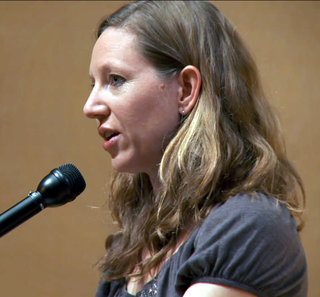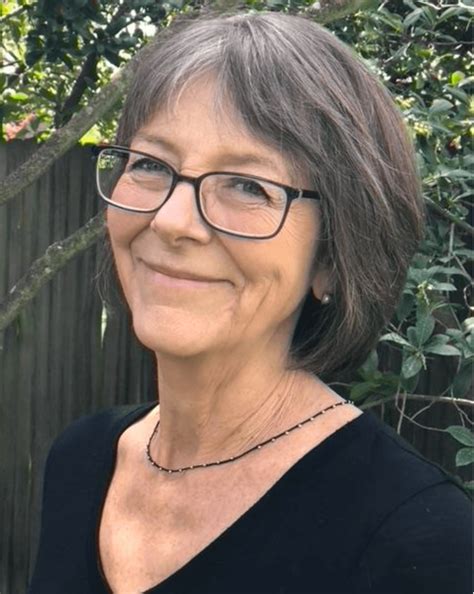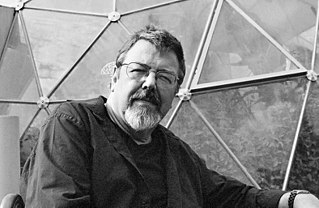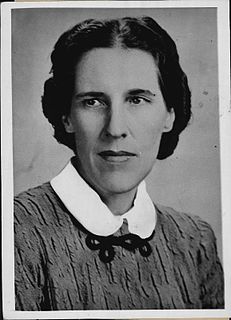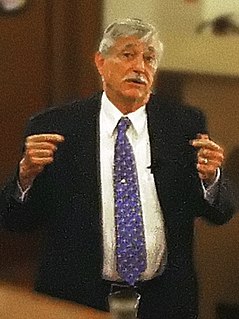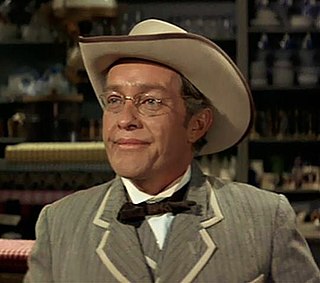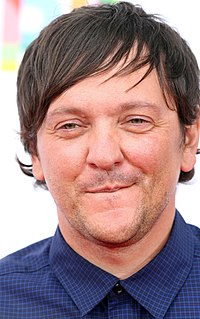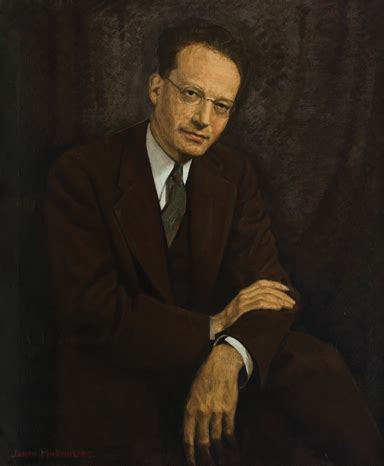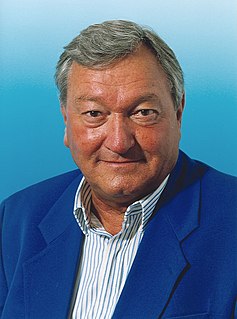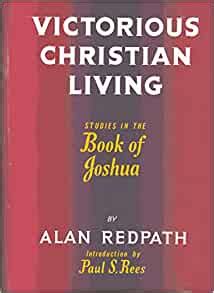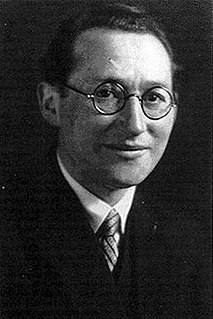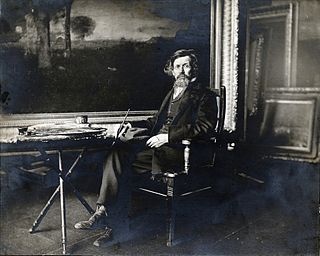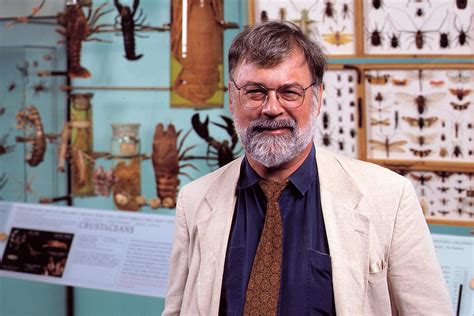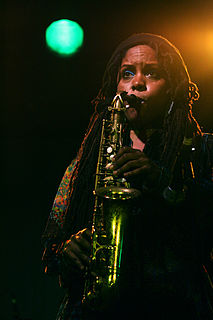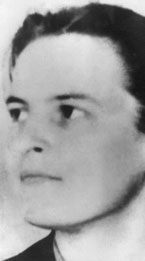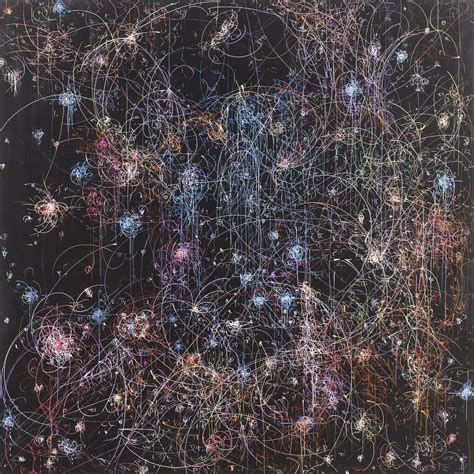Top 999 Punctuation Marks Quotes & Sayings - Page 16
Explore popular Punctuation Marks quotes.
Last updated on November 28, 2024.
A sea-green sky: lamps blossoming white. This is marginal land: fields of strung wire, of treadless tyres in ditches, fridges dead on their backs, and starving ponies cropping the mud. It is a landscape running with outcasts and escapees, with Afghans, Turks and Kurds: with scapegoats, scarred with bottle and burn marks, limping from the cities with broken ribs. The life forms here are rejects, or anomalies: the cats tipped from speeding cars, and the Heathrow sheep, their fleece clotted with the stench of aviation fuel.
There's that layering of selves that we can have with someone else across a long relationship. I go to the baths, the Korean spa. I love looking at the maps of people's bodies. The women have so many mastectomy scars and ectopic pregnancy scars and stretch marks, and all these things are amazing and wondrous to me. I guess I find it stranger not to attend to flux than to attend to it. But in a relationship it's also scary - you don't know where you're going to end up when you go through change.
But we are gravely mistaken to think that Christianity protects us from the pain and agony of mortal existence. Christianity has always insisted that the cross we bear precedes the crown we wear. To be a Christian, one must take up his cross, with all of its difficulties and agonizing and tragedy-packed content, and carry it until that very cross leaves its marks upon us and redeems us to that more excellent way which comes only through suffering.
The trouble with us today, there are too many of us who put question marks instead of periods after what the Lord says. I want you to think about that. We shouldn't be concerned about why He said something, or whether or not it can be made so. Just trust the Lord. We don't try to find the answers or explanations. We shouldn't try to spend time explaining what the Lord didn't see fit to explain. We spend useless time.
That queen, of error, whom we call fancy and opinion, is the more deceitful because she does not always deceive. She would be the infallible rule of truth if she were the infallible rule of falsehood; but being only most frequently in error, she gives no evidence of her real quality, for she marks with the same character both that which is true and that which is false.
Every sentence has its drumbeat. rhythm is one of the most powerful dimensions of language: it separates tribes, united families, soothes children, and shocks us into new awarenesses. Every good writer, marching to his or her own drumbeat, marks out a vibrational field as home territory. The cadences of our sentences carry echos of ancestry and influence as surely as the double helix that orchstrates the life of the body.
Christmas begins what Easter celebrates. The child in the cradle became the king on the cross. And because he did, there are no marks on my record. Just grace. His offer has no fine print. He didn't tell me, "Clean up before you come in." He offered, "Come in, and I'll clean you up." It's not my grip on him that matters but his grip on me. And his grip is sure. So is his presence in my life.
Watching Italians eat (especially men, I have to say) is a form of tourism the books don't tell you about. They close their eyes, raise their eyebrows into accent marks, and make sounds of acute appreciation. It's fairly sexy. Of course I don't know how these men behave at home, if they help with the cooking or are vain and boorish and mistreat their wives. I realized Mediterranean cultures have their issues. Fine, don't burst my bubble. I didn’t want to marry these guys, I just wanted to watch. (p. 247)
One is seduced and battered in turn. The result is presumably wisdom. Wisdom! We are clinging to life like lizards. Why is it so difficult to assemble those things that really matter in life and to dwell among them only? I am referring to certain landscapes, persons, beasts, books, rooms, meteorological conditions, fruits. In fact, I insist on it. A letter is like a poem, it leaps into life and shows very clearly the marks, perhaps I should say thumbprints, of an unwilling or unready composer.
I realized that the way I approached architecture was with a somewhat fashion brain. That didn't get me very good marks in school, because everyone thought fashion was lightweight. In architecture they say, "Well, why is the door pink? Where does it go? What does the pink mean? What does it symbolize? All the other doors are beige, why is that one pink?" I was like, "Well, it's pink because it's pretty."
Most of the world's great souls have been lonely. Loneliness seems to be one price the saint must pay for his saintliness... Always remember: you cannot carry a cross in company. Though a man were surrounded by a vast crowd, his cross is his alone and his carrying of it marks him as a man apart. Society has turned against him; otherwise he would have no cross. No one is a friend to the man with a cross.
There were also the razor marks on her wrists and forearms, half a dozen per arm, not very deep, not very convincing really, just a lame, hapless attempt at hurting herself. There hadn't even been that much blood and nobody at the hospital had been at all surprised. These scars, for some reason, he didn't mind. Maybe they even appealed to him. They showed that she was weak and in need of him.
One of the marks of true genius is a quality of abundance. A rich, rollicking abundance, enough to give indigestion to ordinary people. Great artists turn it out in rolls, in swatches. They cover whole ceilings with paintings, they chip out a mountainside in stone, they write not one novel but a shelf full. It follows that some of their work is better than other. As much as a third of it may be pretty bad. Shall we say this unevenness is the mark of their humanity - of their proud mortality as well as of their immortality?
An argument is made that there are just too many question marks about the near future; wouldn't it be better to wait until things clear up a bit? You know the prose: "Maintain buying reserves until current uncertainties are resolved," etc. Before reaching for that crutch, face up to two unpleasant facts: The future is never clear and you pay a very high price for a cheery consensus. Uncertainty actually is the friend of the buyer of long-term values.
In the end it was Shadowhunting they had bonded over—a shared love of sharp-edged weapons, gleaming seraph blades, the painful pleasure of burning Marks, the thought-numbing swiftness of battle. When Alec had wanted to go out hunting alone with Jace, leaving Izzy behind, Jace had spoken up for her: “We need her with us; she’s the best there is. Aside from me, of course.” She had loved him just for that.
On one hand the eternal attraction of man towards femininity (cf. Gn. 2:23) frees in him-or perhaps it should free-a gamut of spiritual-corporal desires of an especially personal and "sharing" nature (cf. analysis of the "beginning"), to which a proportionate pyramid of values corresponds. On the other hand, "lust" limits this gamut, obscuring the pyramid of values that marks the perennial attraction of male and female.
Mathematical analysis is as extensive as nature itself; it defines all perceptible relations, measures times, spaces, forces, temperatures:;; this difficult science is formed slowly, but it preserves every principle which it has once acquired; it grows and strengthens itself incessantly in the midst of the many variations and errors of the human mind. It's chief attribute is clearness; it has no marks to express confused notations. It brings together phenomena the most diverse, and discovers the hidden analogies which unite them.
It was fantastic to be able to have my kids on set. Dash, my eldest son, who’s not quite five, was into knights and his godmother had given him a plastic Marks & Spencer knights’ outfit and [first assistant director] Tommy Gormley said that he could stand to protect me during the scene where Clive [Owen] is talking about the immensity of sitting on the throne. I’m actually looking through an archway at my son standing in his knights’ costume protecting me!
Picture yourself during the early 1920's inside the dome of the Mount Wilson Observatory. ... Humason is showing Shapley stars he had found in the Andromeda Nebula that appeared and disappeared on photographs of that object. The famous astronomer very patiently explains that these objects could not be stars because the Nebula was a nearby gaseous cloud within our own Milky Way system. Shapley takes his handkerchief from his pocket and wipes the identifying marks off the back of the photographic plate.
Poets, if they're genuine, must keep repeating "I don't know." Each poem marks an effort to answer this statement, but as soon as the final period hits the page, the poet begins to hesitate, starts to realize that this particular answer was pure makeshift that's absolutely inadequate to boot. So the poets keep on trying, and sooner or later the consecutive results of their self-dissatisfaction are clipped together with a giant paperclip by literary historians and called their oeuvre.
Age is as much an asset for character players as it is for good wine. Human experiences, both good and bad, leave their marks on one's face and bearing. A few lines on the face and a few gray hairs coupled with the idiosyncrasies an actor adopts throughout life help out round out the actor's personality. So far as I'm concerned, the older a character actor gets, the firmer his position is.
Once I got into high school, any time I had to do a talk or a speech, I just loved being up in front of an audience, it was always a character. And then I discovered that an impersonation of the teacher was a really, really good way to get a laugh, and it would also get you good marks, because the teachers were always bored and loved to be the "teacher-parody." So that became my little trick at school, and I became known for doing that.
At first it was a bit strange and daunting to have to wear a mask, but afterwards I came to enjoy it. In warm conditions, though, it started to slip off my face. Other times they used this double-sided sticky tape, and I literally couldn't get it off my face. I would feel like I was ripping my face off and I had a lot of cuts and bruises because of it-huge red marks. People might think it was method acting.
And what has come to prevail in democracies is the very reverse of beneficial, in those, that is, which are regarded as the most democratically run. The reason for this lies in the failure properly to define liberty. For there are two marks by which democracy is thought to be defined: "sovereignty of the majority" and "liberty." "Just" is equated with what is equal, and the decision of the majority as to what is equal is regarded as sovereign; and liberty is seen in terms of doing what one wants.
In a print interview, as you may or may not know, they [editors] can do whatever they want. And they do. This is why most people are more hesitant to do print, because they can change it, and they do change it. They even change things that are in quotation marks, which is a pet peeve of mine. I've said to numerous reporters, "Would you read me back my direct quotes?" And they always say no. They always say that's against the policy.
I raise my left arm and twist my neck down to rip off the pill on my sleeve. Instead my teeth sink into flesh. I yank my head back in confusion to find myself looking into Peeta’s eyes, only now they hold my gaze. Blood runs from the teeth marks on the hand he clamped over my nightlock. “Let me go!” I snarl at him, trying to wrest my arm from his grasp. “I can’t,” he says.
He believed that life, true life, was something that was stored in music. True life was kept safe in the lines of Tchaikovsky's Eugene Onegin while you went out in the world and met the obligations required of you. Certainly he knew (though did not completely understand) that opera wasn't for everyone, but for everyone he hoped there was something. The records he cherished, the rare opportunities to see a live performance, those were the marks by which he gauged his ability to love.
One of the marks of our world is perhaps this reversal: we live according to a generalized image-repertoire. Consider the United Sates, where everything is transformed into images: only images exist and are produced and are consumes ... Such a reversal necessarily raises the ethical question: not that the image is immoral, irreligious, or diabolic (as some have declared it, upon the advent of the Photograph), but because, when generalized, it completely de-realizes the human world of conflicts and desires, under cover of illustrating it.
For me, it's a way to find a fiction within a fiction. To find a way to uncover that blunder within the "lie," because when you look closer, every "lie" - and I say that with quotation marks - can be much more complicated. Because that is what fiction is: it's probably the least important thing in the world. It's rich, but it is put-on, it passes the time. It borrows from the world, but it does not invent it.
It is a pity that so many Americans today think of the Indian as a romantic or comic figure in American history without contemporary significance. In fact, the Indian plays much the same role in our society that the Jews played in Germany. Like the miner’s canary, the Indian marks the shift from fresh air to poison gas in our political atmosphere; and our treatment of Indians, even more than our treatment of other minorities, reflects the rise and fall in our democratic faith.
When Howard Marks came out of prison, years later, I met him at a concert in South Wales; I was a young whippersnapper and Howard was kind of an outlaw hero. I said to him - and it's on tape, a cousin of his filmed our meeting - I said, "If you write a book, I want to play you in a movie." He said, "Let's shake on it," and we did. Thirteen years later, there we were, making the movie.
I don't expect that the scientific community now embraces and kisses me 'Oh wonderful, great you did!' we have to live with critics, this is normal. Chariots of the Gods was full of speculation, I had 238 question marks. Nobody read the question mark. They always said: Mr. Von Daniken is saying... I did not say, I asked the questions, would that be a posibility? In Chariots of the Gods, I made clear difference between a speculations and facts.
Genius is often a short way of spelling hard work. Poverty, obscurity, struggle and ambition formed the foundation for many careers of transcendent achievement. Few marks are made in the world's history by eight-hour-day men.... Sir Joshua Reynolds had but one maxim for success: Work, work, work. Is not rigid and continuous training necessary for the making of strong athletes? Hard work is not fatal to real success. Vouloir c'est pouvoir.
Grandad taught me that the alien signs and symbols of algebraic equations were not just marks on paper. They were not flat. They were three-dimensional, and you could approach them from different directions, look at them from different ways, stand them on their heads. You could take them apart and put them back together in a variety of shapes, like Legos. I stopped being scared of them.
Every year at this time, an important phrase marks the season: peace on earth and goodwill towards men. It's so common we sometimes forget about what it really means - that we strive for a world without war, a society where we respect and help our neighbors, a place where we protect and uplift our most in need. This isn't a phrase we should live by for one day or one month. It's a set of values that must bond and motivate us every day.
Deep down in the Christian's life, always and all the time, there is to be a "no" to every demand that the flesh may make for recognition, and every demand that the flesh may make for approval, and every demand that the flesh may make for vindication. Always the Christian must bear about in his body the marks of the Lord Jesus.
Every successful man must have behind him somewhere tremendous integrity, tremendous sincerity, and that is the cause of his signal success in life. He may not have been perfectly unselfish; yet he was tending towards it. If he had been perfectly unselfish, his would have been as great a success as that of the Buddha or of the Christ. The degree of unselfishness marks the degree of success everywhere.
The history of acceptance of new theories frequently shows the following steps: At first the new idea is treated as pure nonsense, not worth looking at. Then comes a time when a multitude of contradictory objections are raised, such as: the new theory is too fancy, or merely a new terminology; it is not fruitful, or simply wrong. Finally a state is reached when everyone seems to claim that he had always followed this theory. This usually marks the last state before general acceptance.
You will not get to steal quietly into heaven, into Christ's company, without a conflict and a cross. I find crosses to be Christ's carved work that he marks out for us and that with crosses he portraits us to his own image, cutting away pieces of our ill and corruption. Lord cut - Lord carve - Lord wound - Lord do anything that may perfect thy Father's image in us and make us ready for glory.
Listen to me. I am leaving, but I am living. I will not be gone from you entirely, Will. When you fight now, I will be still by you. When you walk in the world, I will be the light at your side, the ground steady under your feet, the force that drives the sword in your hand. We are bound, beyond the oath. The Marks did not change that. The oath did not change that. It merely gave words to something that existed already.
Now the work of art also represents a state of final equilibrium, of accomplished order and maximum relative entropy, and there are those who resent it. But art is not meant to stop the stream of life. Within a narrow span of duration and space the work of art concentrates a view of the human condition; and sometimes it marks the steps of progression, just as a man climbing the dark stairs of a medieval tower assures himself by the changing sights glimpsed through its narrow windows that he is getting somewhere after all.
The highest art is where has been most perfectly breathed the sentiment of humanity...Some persons suppose that landscape has no power of communicating human sentiment. But this is a great mistake. The civilized landscape peculiarly can: and therefore I love it more and think it more worthy of reproduction than that which is savage and untamed. It is more significant. Every act of man, every thing of labor, effort, suffering, want, anxiety, necessity, love, marks itself wherever it has been.
One of the marks of a certain type of bad man is that he cannot give up a thing himself without wanting every one else to give it up. That is not the Christian way. An individual Christian may see fit to give up all sorts of things for special reasons--marriage, or meat, or beer, or the cinema; but the moment he starts saying the things are bad in themselves, or looking down his nose at other people who do use them, he has taken the wrong turning.
Let all your thoughts be with the Most High, and direct your humble prayers unceasingly to Christ. If you cannot contemplate high and heavenly things, take refuge in the Passion of Christ, and love to dwell within His Sacred Wounds. For if you devoutly seek the Wounds of Jesus and the precious marks of His Passion, you will find great strength in all troubles.
If it is true that an influx of doubt and uncertainty actually marks periods of healthy growth in a science, then evolutionary biology is flourishing today as it seldom has flourished in the past. For biologists collectively are less agreed upon the details of evolutionary mechanics than they were a scant decade ago. Superficially, it seems as if we know less about evolution than we did in 1959, the centennial year of Darwin's on the Origin of Species.
I fear it is sometimes forgotten that God has married together justification and sanctification. They are distinct and different things, beyond question, but one is never found without the other. All justified people are sanctified, and all sanctified people are justified. ... Tell me not of your justification, unless you have also some marks of sanctification. Boast not of Christ's work for you, unless you can show us the Spirit's work in you.
The whole time I was hoping my silence would fit yours and exclamation marks would gently float across time and space so that boundaries would be crossed; the whole time I was praying you would read my eyes and understand what I was never able to understand. See, we were never about butterflies. We’ve always been about burning stars. All about us is unearthly and radiant.
The gap between ideals and actualities, between dreams and achievements, the gap that can spur strong men to increased exertions, but can break the spirit of others -- this gap is the most conspicuous, continuous land mark in American history. It is conspicuous and continuous not because Americans achieve little, but because they dream grandly. The gap is a standing reproach to Americans; but it marks them off as a special and singularly admirable community among the world's peoples.
But the most deplorable effect of all, is that diminution of attachment and reverence, which steals into the hearts of the people, towards a political system which betrays so many marks of infirmity, and disappoints so many of their flattering hopes. No government, any more than an individual, will long be respected, without being truly respectable; nor be truly respectable, without possessing a certain portion of order and stability.
Others of them employ outward marks ... They style themselves Gnostics. They also possess images, some of them painted and others formed from different kinds of material. They maintain that a likeness of Christ was made by Pilate at that time when Jesus lived among them. They crown these images, and set them up along with the images of the philosophers of the world, such as Pythagoras, Plato, and Aristotle, and the rest. They have also other modes of honoring these images just like the Gentiles.
Then said he, ’I am going to my Father’s; and though with great difficulty I am got hither, yet now I do not repent me of all the trouble I have been at to arrive where I am. My sword I give to him that shall succeed me in my pilgrimage, and my courage and skill to him that can get it. My marks and scars I carry with me, to be a witness for me that I have fought His battles who now will be my rewarder.’.... So he passed over, and all the trumpets sounded for him on the other side.
We are and remain such creeping Christians, because we look at ourselves and not at Christ; because we gaze at the marks of our own soiled feet, and the trail of our own defiled garments.... Each, putting his foot in the footprint of the Master, and so defacing it, turns to examine how far his neighbor’s footprint corresponds with that which he still calls the Master’s, although it is but his own.
History without the history of science, to alter slightly an apothegm of Lord Bacon, resembles a statue of Polyphemus without his eye-that very feature being left out which most marks the spirit and life of the person. My own thesis is complementary: science taught ... without a sense of history is robbed of those very qualities that make it worth teaching to the student of the humanities and the social sciences.
The denial of any distinction between foreseen and intended consequences, as far as responsibility is concerned, was not made by Sidgwick in developing any one 'method of ethics'; he made this important move on behalf of everybody and just on its own account; and I think it plausible to suggest that this move on the part of Sidgwick explains the difference between old-fashioned Utilitarianism and the consequentialism, as I name it, which marks him and every English academic moral philosopher since him.
To do God's will as fast as it is made known to us, to inquire hourly -- I had almost said each moment -- what He requires of us, and to leave ourselves, our friends, and every interest at His control, with a cheerful trust that the path which He marks out leads to our perfection and to Himself, -- this is at once our duty and happiness; and why will we not walk in the plain, simple way?.
The veil deliberately marks women as private and restricted property, nonpersons. The veil sets women apart from men and apart from the world; it restrains them, confines them, grooms them for docility. A mind can be cramped just as a body may be, and a Muslim veil blinkers both your vision and your destiny. It is the mark of a kind of apartheid, not the domination of a race but of a sex.
There's stable subatomic particles - protons, neutrons, electrons - and then there's unstable ones that decay into stable ones. One will become many. There's this constant process of transformation that underlies everything in the entire universe. They also make these beautiful marks through time. It's like the universe was drawing, essentially, at this fundamental level. There's always an alphabet that's based in natural patterns. Sometimes they're just by themselves, sometimes they build up these other things that relate to the conception, that are more at our level of existence.
Was not Jesus an extremist for love: "Love your enemies, bless them that curse you, do good to them that hate you, and pray for them which despitefully use you, and persecute you." Was not Amos an extremist for justice: "Let justice roll down like waters and righteousness like an ever-flowing stream." Was not Paul an extremist for the Christian gospel: "I bear in my body the marks of the Lord Jesus."
The wrinkled man in the wheelchair with the legs wrapped, the girl with her face punctured deep with the teeth marks of a dog, the mess of the world, and I see - this, all this, is what the French call d'un beau affreux, what the Germans call hubsch-hasslich - the ugly-beautiful. That which is perceived as ugly transfigures into beautiful. What the postimpressionist painter Paul Gauguin expressed as 'Le laid peut etre beau' - The ugly can be beautiful. The dark can give birth to life; suffering can deliver grace.

